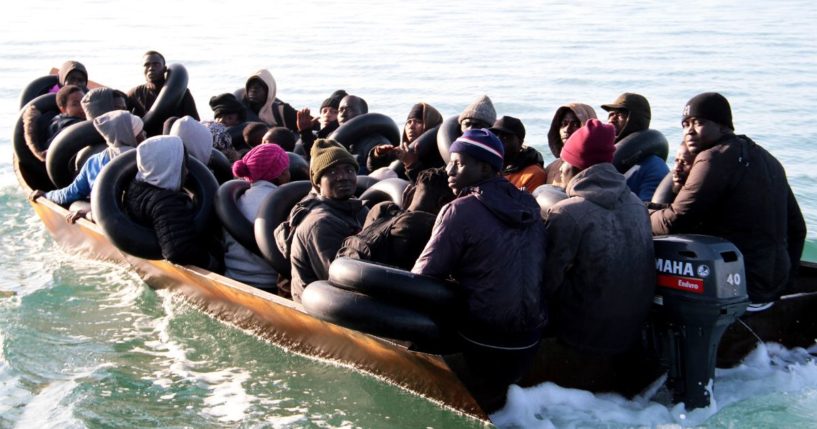
Over 200 Bodies Wash Up on Beaches - Coast Guard Working to Recover and Identify the Corpses
Tunisia’s coast guard says it has recovered around 210 bodies of migrants in less than two weeks that have washed up on the North African country’s central coastline amid an ongoing increase in migration.
Preliminary examinations of the bodies indicated that the migrants were from sub-Saharan Africa, according to the National Guard’s Houssemeddine Jebabli.
The number of bodies recovered was announced Friday.
Of the 210 dead migrants found over 10 days starting on April 18, about 70 of those were recovered from the beaches of eastern Sfax, the neighboring Kerkennah Islands and Mahdia, according to prosecutor Faouzi Masmoudi, who oversees migration issues.
These three areas are starting points for most attempts to migrate to the Italian coast, including onward to the remote island of Lampedusa, he added.
The increasing number of dead migrants has overwhelmed the Habib Bourguiba Hospital morgue in Sfax, the capacity of which is 30 to 40 bodies.
To ease the pressure on hospitals, local authorities are working to speed up the burial of the victims after carrying out DNA tests and possible identification by relatives, Masmoudi said.
Romdhane Ben Amor, spokesperson for the Tunisian Forum for Economic and Social Rights, a nongovernmental organization specializing in migration issues, said that local authorities had last year committed themselves to setting up a special cemetery for migrants, “on the grounds that they are not Muslims.”
But Amor said that this is still not ready, leading to difficulties in finding burial places.
Following a visit earlier this week by European Commissioner for Home Affairs Ylva Johansson, the Tunisian Foreign Ministry said in a statement Thursday that Tunisia and the European Union agreed to promote the voluntary return of sub-Saharan migrants to their countries of origin.
During her stay, the EU official met with Tunisian Foreign Minister Nabil Ammar, Interior Minister Kamel Feki and Social Affairs Minister Malek Ezzahi.
Migration to Europe has been on an upward climb, peaking in 2022 to 189,620, according to the International Organization for Migration.
That’s the most since 2016, when close to 400,000 left their homelands, and one year after more than 1 million people, mostly Syrians fleeing war, sought refuge in 2015.
For many sub-Saharan Africans, who don’t need a visa to travel to Tunisia, the North African country serves as a stepping stone to Europe, while others come from Libya, which shares a border with Tunisia.
The Western Journal has reviewed this Associated Press story and may have altered it prior to publication to ensure that it meets our editorial standards.
Truth and Accuracy
We are committed to truth and accuracy in all of our journalism. Read our editorial standards.
Advertise with The Western Journal and reach millions of highly engaged readers, while supporting our work. Advertise Today.












